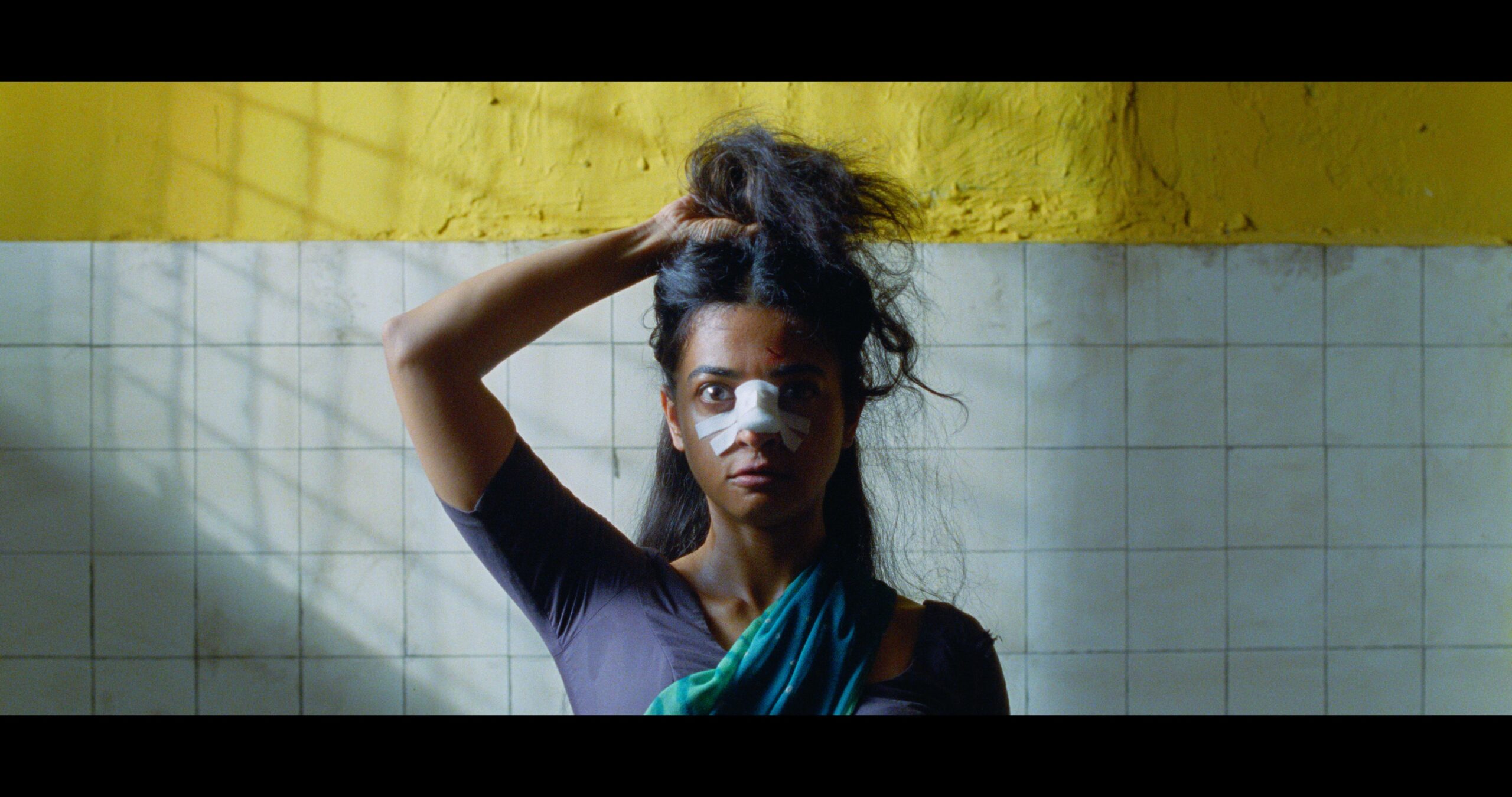
SISTER MIDNIGHT
Uma (Radhika Apte) is brash, acerbic and vulgar. Unable to cook or manage household expenses, she fulfills very few of the rigid expectations of a new Indian bride. The awkwardness is palpable between her and her soft-spoken husband Gopal (Ashok Pathak), who is ostensibly a stranger she will spend her wedding night with in their cramped, one-room apartment. She wants to (or perhaps, believes it’s her duty to) sleep with him, but he can barely take his shirt off in front of her.
Between Uma’s gossiping neighbors and the pressures of social expectation, her psyche begins to rip apart at the seams, until eventually she finds a particularly macabre outlet for her frustrations. When her anxieties begin to manifest in the world around her, she finds the jolt that she needs in a rabid taste for blood.
This soon causes a world-building fissure, psychedelically realized in a Vitamix blender of The Daniels, Wes Anderson, and director Kandhari himself, who is neither constrained by tone nor genre expectations, with inventive needle drops ranging from Bengali folk to American punk and blues. In the end, SISTER MIDNIGHT is a confident, surrealist satire on Indian arranged marriages, centered on a protagonist who feels trapped in a strange psychosis.


